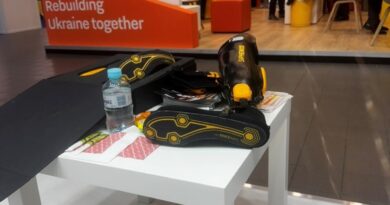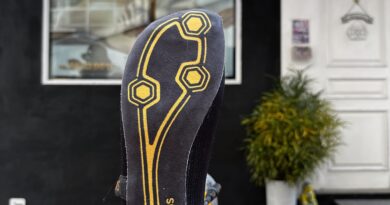Sensory Feedback reduces phantom pain and boosts longevity
The future of prosthetics is here – and it feels alive.
Losing a limb is not just about losing a part of the body; it brings a host of challenges: from phantom pain to restricted mobility and the emotional toll of adjusting to daily life. This is where Saphenus comes in, a company that is not only developing cutting-edge prosthetics but is transforming the lives of amputees in ways that were unimaginable just a few years ago.
The Problem: A Body Without Feedback
Prosthetics have been around for a long time. But let’s be honest: many of them are more tools than actual extensions of the body. A prosthetic arm or leg can mimic movement, but what’s missing is the feeling. Imagine walking down the street, but your feet don’t tell you if the ground is hard or soft. Or imagine reaching for a glass but not knowing how tightly you’re holding it.
This is the reality for many people with traditional prostheses. Saphenus changes this by introducing technology that reconnects the body and the nervous system. Sensory feedback. Suddenly, the amputee can feel what their prosthetic limb “senses,” whether it’s pressure, texture, or grip strength.
Phantom Pain – The Invisible Burden
One of the biggest struggles for amputees is phantom pain. Many feel pain, itching, or tingling in the missing limb as though it were still there. These sensations are not only frustrating but can severely impact quality of life, robbing people of sleep and causing significant discomfort.
Saphenus’ technology offers a real solution to phantom pain. By reestablishing communication between the brain and the missing limb through the prosthetic’s sensory feedback, the brain stops interpreting the absence of signals as pain. This closes the loop in perception, reducing or even eliminating phantom pain for many users.
The Forgotten Markets – A Huge Opportunity
In many Western countries, access to modern prosthetics is becoming the norm. But what about the countless people in regions where amputations are common but access to these technologies is limited? It’s estimated that over 70% of amputees globally lack access to functional prosthetics, let alone ones with sensory feedback. In countries where war, accidents, or diseases like diabetes are widespread, the technology from Saphenus could make an enormous difference.
It’s not just about high-tech countries. It’s about improving the quality of life globally. And this is where Saphenus’ vision shines: creating affordable, bionic prosthetics that are accessible to every part of the world. Imagine millions of people, who today live without functional limbs, being able to regain mobility and independence thanks to these advanced yet affordable prosthetics.
Health Literacy and Longevity – Knowledge is Power
An essential part of this revolution is health literacy. Amputees need to know how to use their prosthetics correctly, how to monitor their health, and how to maintain both physical and mental fitness over the long term. Saphenus focuses not only on delivering state-of-the-art prosthetics but also on educating and supporting patients to manage their health and care for their prosthetic limbs.
With greater understanding of their own health, combined with a modern, well-functioning prosthesis, amputees have the chance to live longer, healthier, and more independent lives. Reduced pain, restored mobility, and the feeling of being “whole” again all contribute to significantly improved well-being and longevity.
Looking to the Future
It’s impressive to see how far Saphenus’ technology has come – and how much potential it still holds. What if every amputee, whether in the U.S., Ukraine, or a remote village in Africa, had access to a prosthetic limb that not only mimics movement but actually feels?
The journey to that future has started already. With affordable bionic prosthetics that could transform the global market. This isn’t just a technological revolution; it’s a revolution of humanity. Because, at the end of the day, it’s about giving people back their freedom, their confidence, and their future.
The future is bionic – and Saphenus is leading the way.




